Cloud computing has revolutionized how businesses operate, offering unparalleled scalability, flexibility, and cost-efficiency. Born from the necessity of Amazon to optimize its e-commerce infrastructure in 2002 and later pioneered by Amazon Web Services (AWS) in 2006, the cloud services market has exploded. Today, choosing the right cloud server provider is a critical decision for any organization looking to thrive in the digital age.
This guide will delve into the world of cloud service providers, exploring the market dynamics, key benefits and challenges, and ultimately presenting a curated list of the Top Cloud Server Providers in 2024.
Understanding Cloud Service Providers (CSPs)
A Cloud Service Provider (CSP) essentially functions as a rental agency for digital infrastructure. They own and maintain vast networks of data centers equipped with servers, storage devices, networking equipment, and the expertise to manage it all. Instead of companies investing heavily in building and maintaining their own on-premises infrastructure, they can access these resources through a CSP via the internet.
This access is typically on a pay-as-you-go basis, meaning you only pay for the computing resources you consume. This model allows businesses of all sizes to leverage enterprise-grade infrastructure without the massive upfront capital expenditure and ongoing maintenance burdens.
CSPs offer a wide array of services, broadly categorized as:
- Infrastructure-as-a-Service (IaaS): Provides access to fundamental computing resources like virtual machines, storage, and networks, giving users maximum control over their infrastructure.
- Platform-as-a-Service (PaaS): Offers a platform for developing, running, and managing applications without the complexity of managing the underlying infrastructure.
- Software-as-a-Service (SaaS): Delivers software applications over the internet, typically on a subscription basis, allowing users to access and use software without installation or maintenance.
- Serverless Computing: Enables developers to run code without provisioning or managing servers, automatically scaling resources based on demand.
 The Cloud Cost Playbook
The Cloud Cost Playbook
Benefits of Choosing a CSP over On-Premises Infrastructure
Opting for a cloud server provider over building and maintaining an on-premises infrastructure offers a compelling set of advantages:
- Reduced Capital Expenditure (CAPEX): Eliminates the need for large upfront investments in hardware, software, and data center facilities. Instead of significant CAPEX, businesses transition to a predictable operational expenditure (OPEX) model.
- Faster Time-to-Market: Cloud infrastructure is readily available, allowing businesses to rapidly deploy applications and services without lengthy procurement, installation, and configuration processes. This agility accelerates product development and launch cycles.
- Enhanced Agility and Scalability: CSPs provide on-demand scalability, allowing businesses to easily adjust their computing resources up or down based on fluctuating demands. This flexibility is crucial for adapting to market changes and seizing new opportunities.
- Access to a Wide Range of Services: CSPs offer a comprehensive suite of services, including compute, storage, databases, analytics, AI/ML, and more. This allows businesses to access cutting-edge technologies without developing them in-house.
- Flexible Deployment Models: CSPs support various cloud deployment models, including public, private, hybrid, and multi-cloud, allowing businesses to choose the best fit for their specific needs and compliance requirements.
- Pay-As-You-Go Pricing: The usage-based pricing model ensures cost efficiency, as businesses only pay for the resources they actually use. This eliminates wasted resources and optimizes IT spending.
- Managed Services and Expertise: CSPs handle the complexities of infrastructure management, including maintenance, security, updates, and optimization. This frees up internal IT teams to focus on strategic initiatives and core business functions.
- Robust Disaster Recovery: CSPs offer geographically distributed data centers and robust backup and recovery mechanisms, ensuring business continuity and data resilience in the face of unforeseen events.
Navigating the Challenges of Cloud Server Providers
While the benefits of using a CSP are substantial, it’s crucial to acknowledge and address the potential challenges:
Data Confidentiality Concerns
Public cloud environments rely on shared infrastructure, which can raise concerns about data confidentiality for businesses handling sensitive information. While CSPs invest heavily in security, the shared nature of the environment requires careful consideration of data protection measures and compliance requirements.
Data Security Risks
Cloud security is a shared responsibility model. While CSPs secure the underlying infrastructure, customers are responsible for securing their data and applications within the cloud. Data breaches and security vulnerabilities remain a concern, necessitating robust security practices and vigilance.
Limited Infrastructure Control
Depending on the chosen service model and CSP, businesses may have less direct control over the underlying infrastructure compared to on-premises deployments. This can be a concern for organizations with highly specific infrastructure requirements or stringent compliance mandates.
Vendor Lock-in Potential
Becoming heavily reliant on a single CSP can lead to vendor lock-in, making it challenging and costly to migrate to another provider in the future. Strategic planning and multi-cloud strategies can mitigate this risk.
Market Dominance: The Reign of the “Big Three”
The cloud infrastructure market is largely dominated by three giants: Amazon Web Services (AWS), Microsoft Azure, and Google Cloud Platform (GCP). These three providers collectively hold a significant market share, accounting for approximately 66% of the global cloud infrastructure spending.
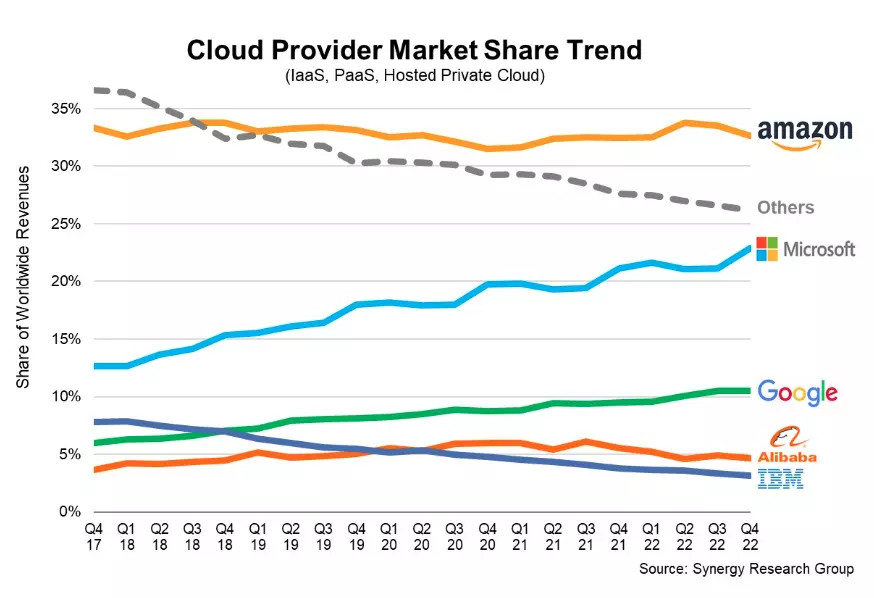 Cloud Service Provider Line Graph
Cloud Service Provider Line Graph
This dominance is driven by their extensive global infrastructure, comprehensive service offerings, mature platforms, and established customer base. However, while the “Big Three” lead the pack, a diverse landscape of other CSPs caters to specific niches and customer needs, offering valuable alternatives.
The cloud computing market is experiencing robust growth, with projections indicating a continued expansion in the coming years. For instance, forecasts from Grand View Research suggest a substantial Compound Annual Growth Rate (CAGR) for the US cloud computing market, highlighting the sustained momentum of this industry.
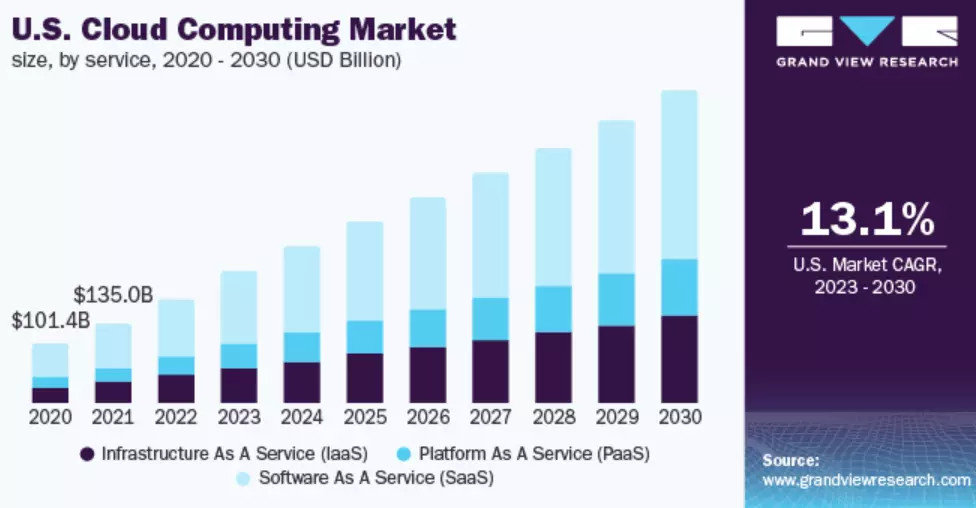 Cloud Service Provider Market Share Bar Chart
Cloud Service Provider Market Share Bar Chart
This growth underscores the increasing importance of cloud services for businesses across all sectors and the continued relevance of choosing the right cloud server provider.
Top 13 Cloud Server Providers in 2024
Beyond the giants, a range of specialized and innovative cloud providers offer compelling alternatives and cater to diverse needs. Here are 13 of the top cloud server providers in 2024, each bringing unique strengths to the cloud landscape:
1. Amazon Web Services (AWS) – The Industry Leader in IaaS
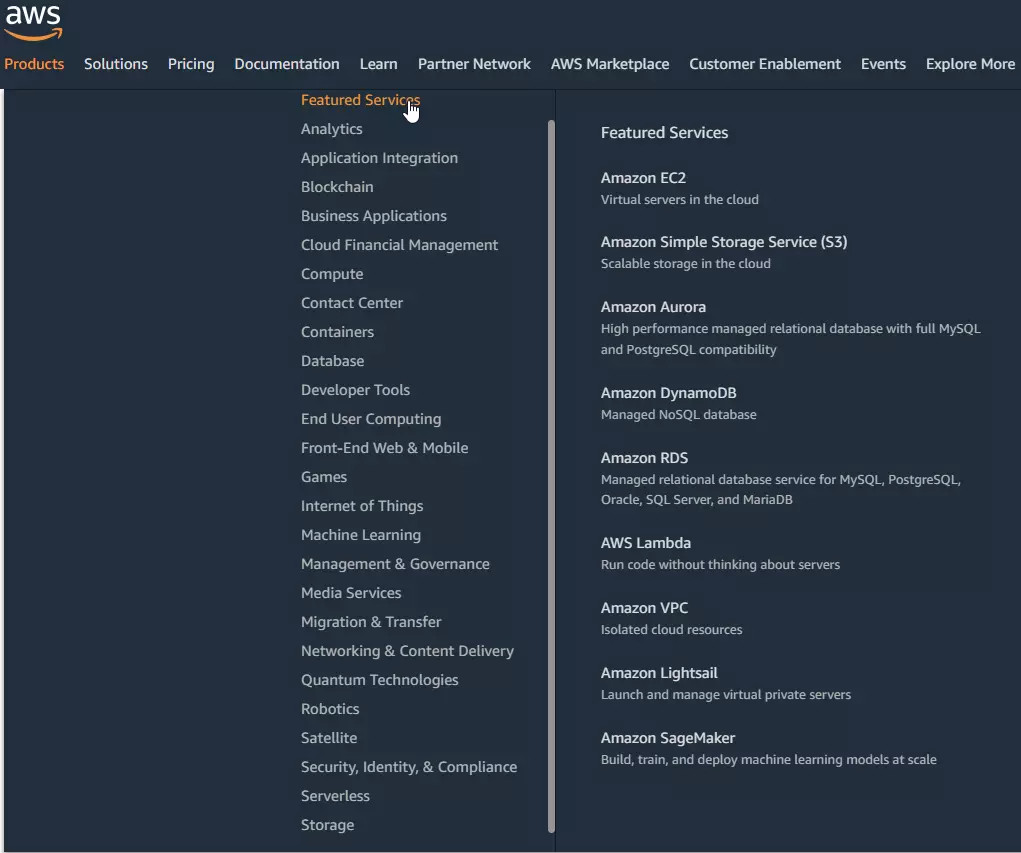 Amazon Web Services (AWS)
Amazon Web Services (AWS)
Amazon Web Services (AWS) remains the undisputed leader in cloud computing, boasting the largest global market share. Renowned for its mature and extensive Infrastructure-as-a-Service (IaaS) offerings, AWS provides over 200 services spanning various technology categories. Key services include Elastic Compute Cloud (EC2) for compute, Simple Storage Service (S3) for storage, and Relational Database Service (RDS) for databases.
With a massive global infrastructure footprint encompassing over 100 Availability Zones across 31 regions, AWS offers unparalleled scalability and reliability. While primarily known for its public cloud, AWS also supports on-premises, private, hybrid, and multi-cloud deployments, making it a versatile choice for diverse organizational needs. Its quick setup process and a mix of free, affordable, and premium services further contribute to its widespread popularity.
2. Microsoft Azure – Enterprise-Focused Hybrid Cloud Solutions
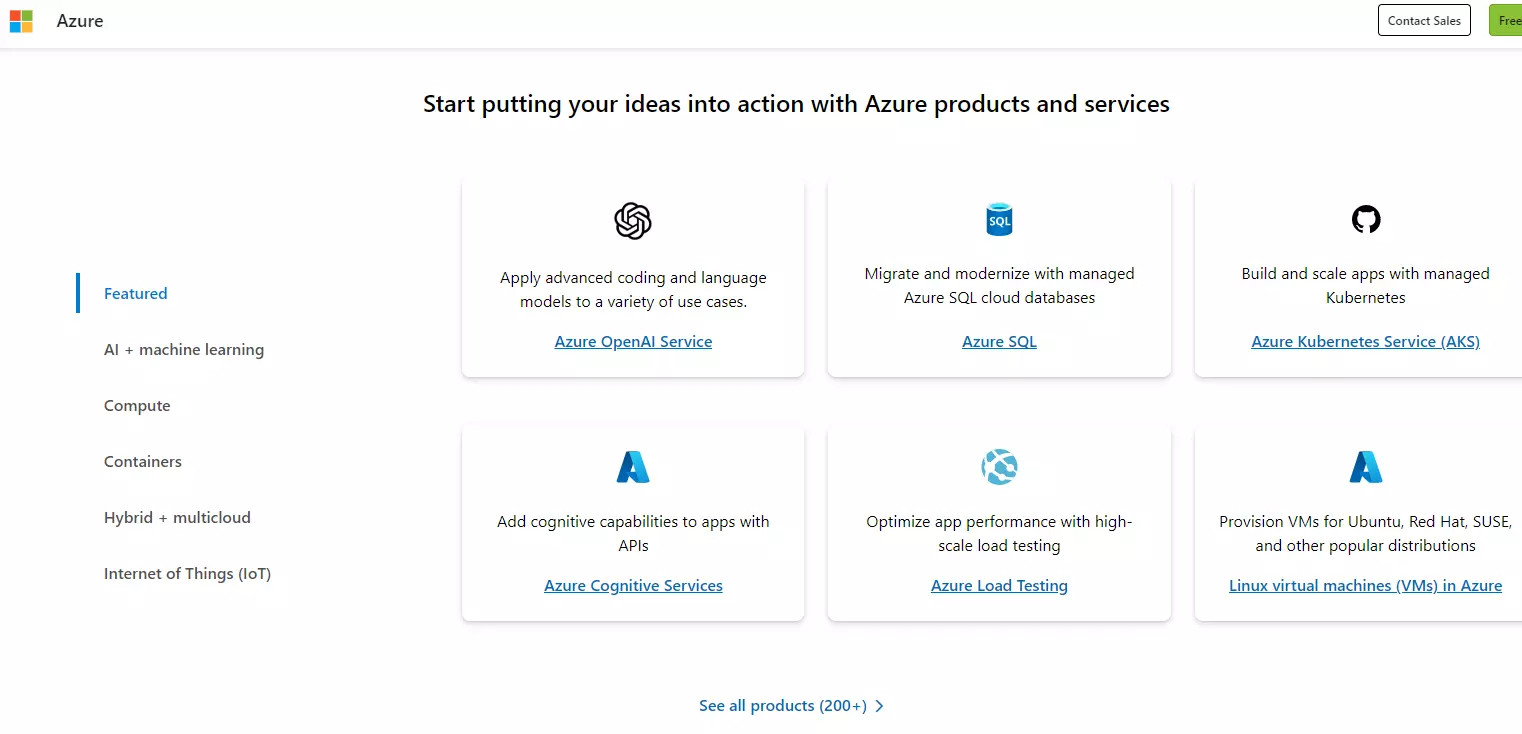 microsoft azure
microsoft azure
Microsoft Azure, part of the Microsoft Intelligent Cloud, is the second-largest cloud provider, steadily gaining market share. Azure delivers a comprehensive suite of over 200 cloud services, encompassing IaaS, PaaS, SaaS, Edge, and Serverless computing. Azure’s strength lies in its appeal to enterprises, particularly those already invested in the Microsoft ecosystem. Its strong hybrid cloud capabilities and seamless integration with Microsoft products like Office 365 make it a natural choice for organizations seeking to extend their on-premises infrastructure to the cloud. Azure’s extensive global network includes over 116 Availability Zones, ensuring robust performance and availability.
3. Google Cloud Platform (GCP) – Innovation in AI, ML, and Data Analytics
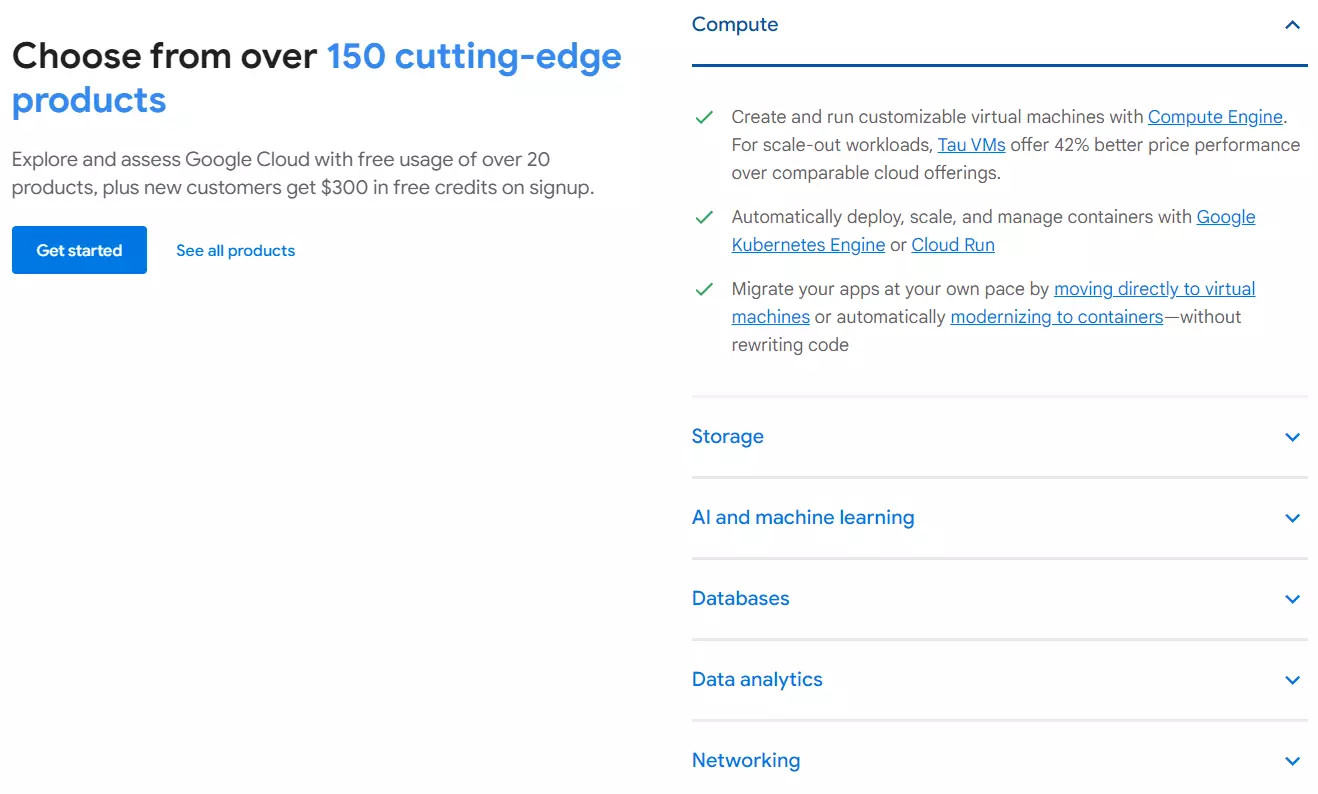 Google Cloud Platform (GCP)
Google Cloud Platform (GCP)
Google Cloud Platform (GCP) is the third major player, distinguishing itself through leadership in cutting-edge technologies like Artificial Intelligence (AI), Machine Learning (ML), Data Analytics, and Kubernetes. GCP offers a comparable range of services to AWS and Azure, but its strengths in data-centric technologies and its close integration with Google’s suite of services, including Google Workspace, make it attractive to businesses focused on data innovation and application modernization. GCP’s expertise in containerization with Kubernetes has made it a popular choice for developers and organizations embracing cloud-native architectures.
4. Alibaba Cloud – Asia’s Leading Cloud Provider
 alibaba
alibaba
Alibaba Cloud is the dominant cloud provider in Asia and a significant global player. Originating from the Alibaba e-commerce giant, similar to AWS’s Amazon roots, Alibaba Cloud has grown to capture a substantial share of the global cloud market. It offers a comprehensive range of cloud services, supporting diverse operations for large enterprises, SMEs, governments, and non-profit organizations. For businesses operating in Southeast Asia and the broader Asian market, Alibaba Cloud is a top contender, providing localized support and infrastructure.
5. IBM Cloud – Hybrid and Multi-Cloud Expertise
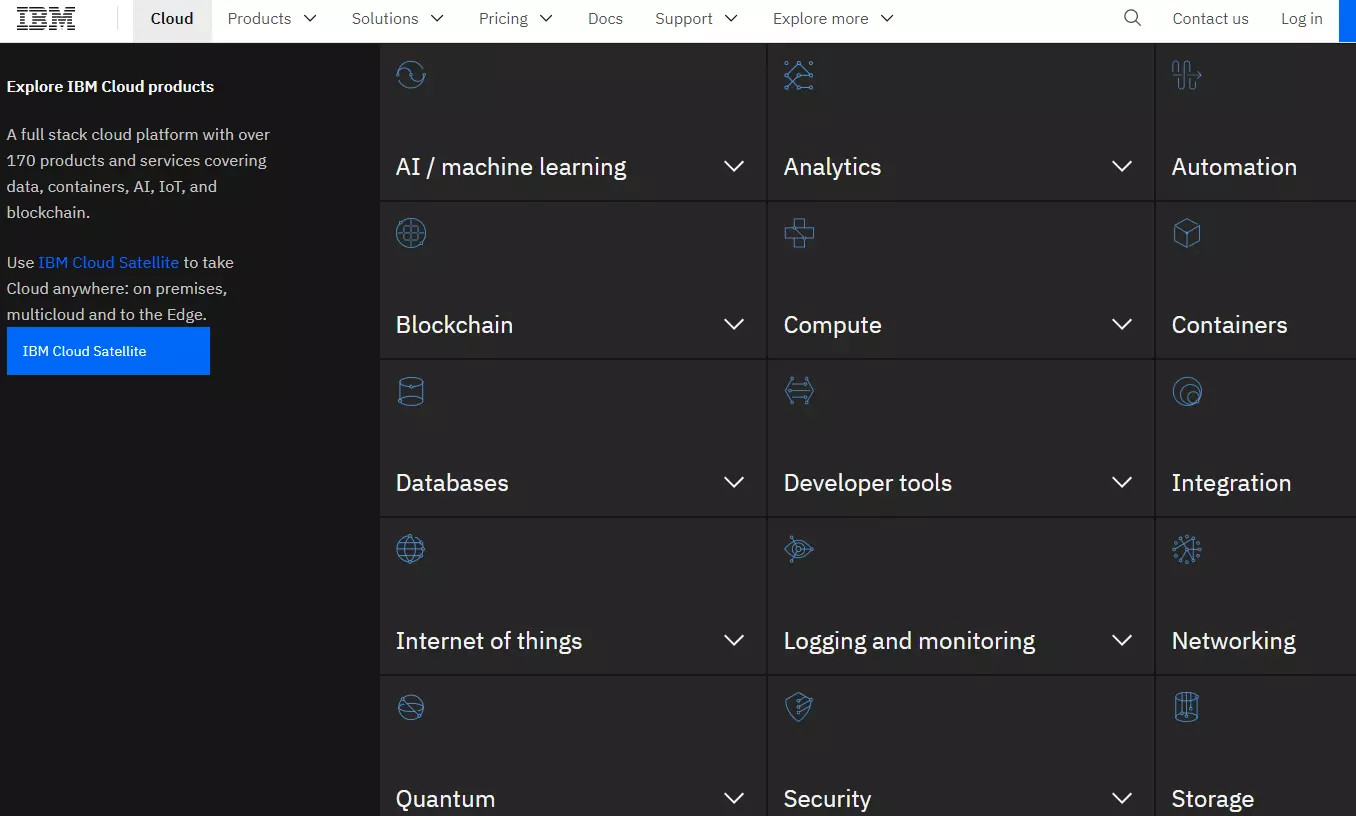 ibm cloud
ibm cloud
IBM Cloud Services focuses on facilitating digital transformation for businesses seeking to transition from traditional on-premises environments to the cloud. IBM Cloud excels in hybrid and multi-cloud deployments, offering over 170 products across on-premises, hybrid, and multi-cloud environments. With a strong emphasis on managed Infrastructure-as-a-Service (IaaS) and cloud migration services, IBM Cloud caters to organizations seeking a trusted partner for complex cloud journeys. Its expertise in regulated industries and enterprise-grade security is a key differentiator.
6. DigitalOcean Cloud – Developer-Centric Cloud for SMBs
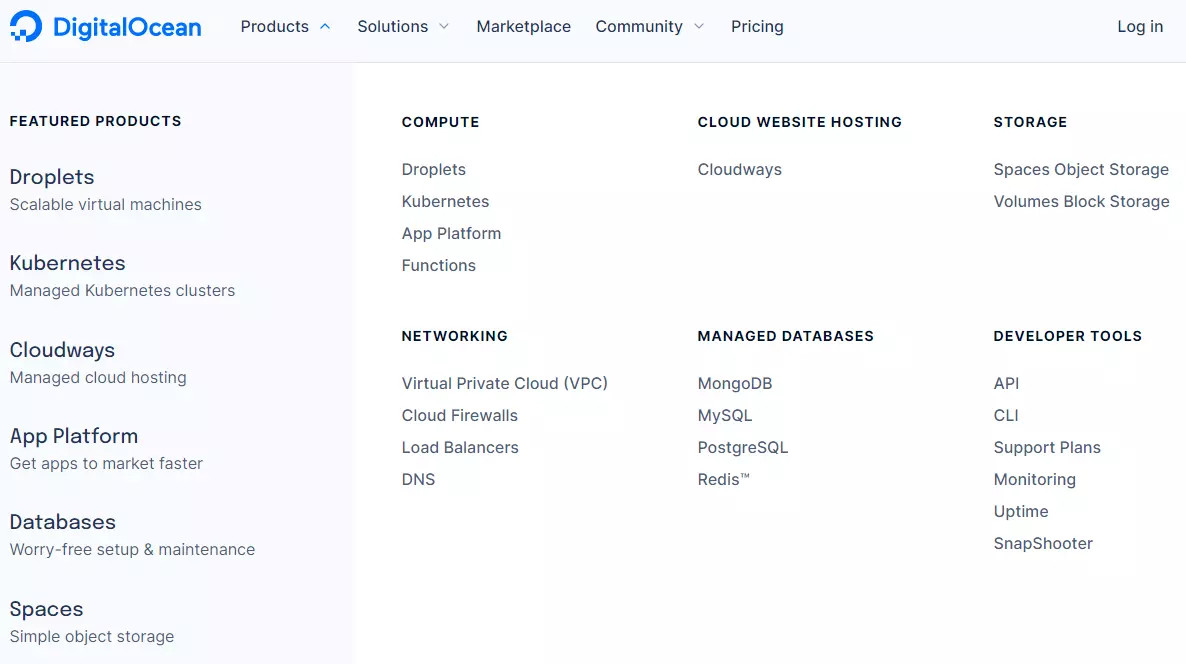 digitalocean cloud
digitalocean cloud
DigitalOcean Cloud platform is tailored for developers and small to medium-sized businesses (SMBs). It provides a simplified cloud experience focused on ease of use and developer productivity. DigitalOcean’s primary offerings are compute and storage, delivered through an IaaS model with a pay-as-you-go pricing structure. Known for its intuitive interface, robust documentation, and strong community support, DigitalOcean is a popular choice for startups and developers seeking a straightforward and affordable cloud platform.
7. Salesforce Cloud – Pioneering SaaS and CRM Solutions
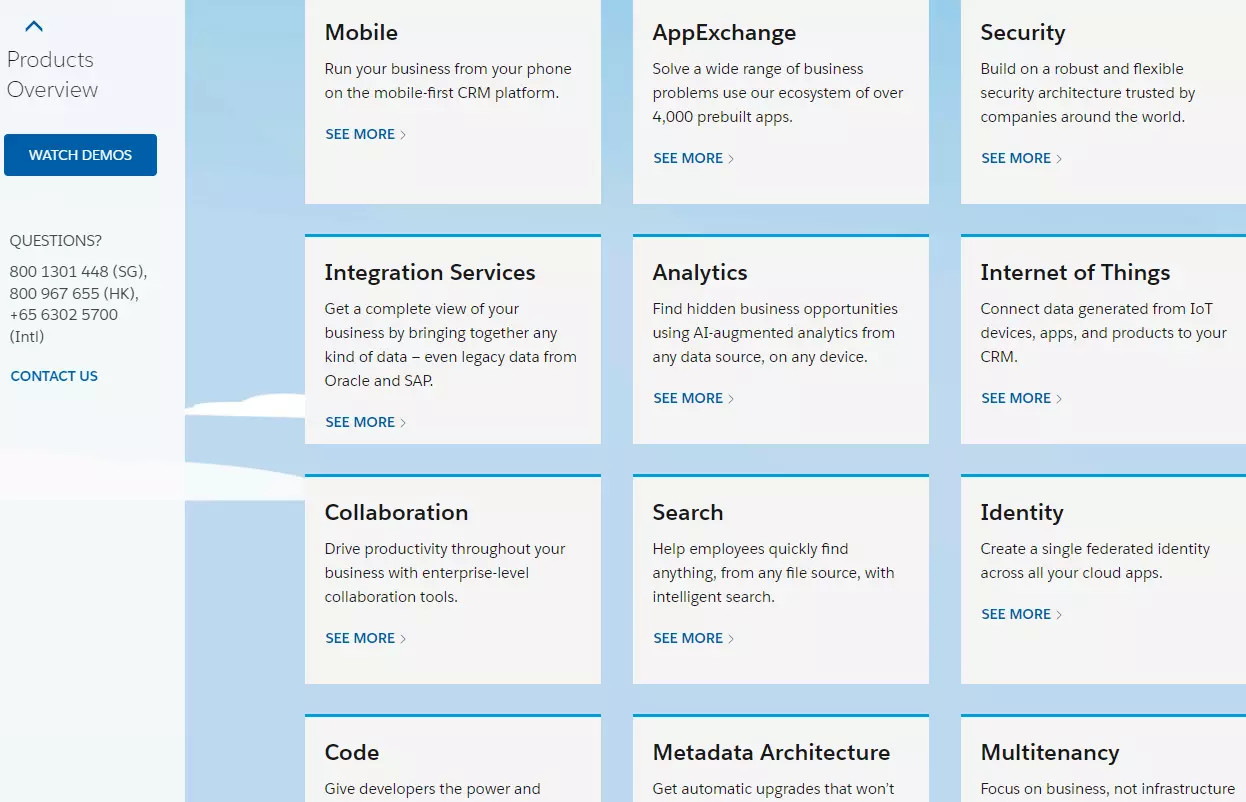 salesforce cloud
salesforce cloud
Salesforce is a pioneer of the Software-as-a-Service (SaaS) model. Salesforce Cloud delivers a range of cloud-based applications across various business functions, including sales, marketing, customer service, commerce, and analytics. Best known for its Customer Relationship Management (CRM) suite, Salesforce provides comprehensive SaaS solutions for managing customer interactions and business processes. Its focus on application-level services distinguishes it from primarily infrastructure-focused providers.
8. Tencent Cloud – Expanding Global Reach from China
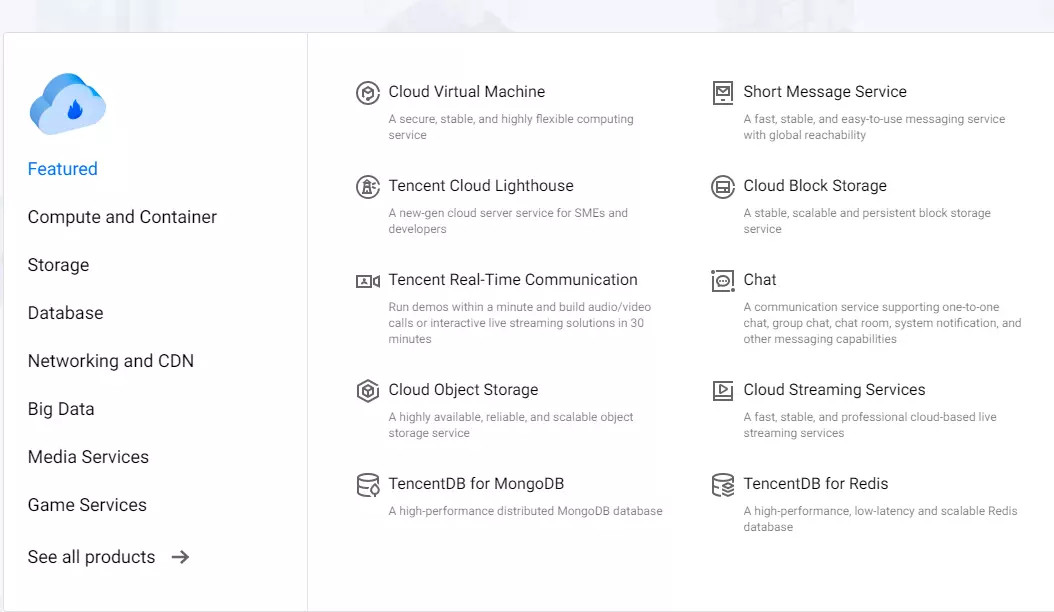 tencent cloud
tencent cloud
Tencent Cloud is another major cloud provider originating from China, similar to Alibaba Cloud. Tencent Cloud offers a broad spectrum of cloud computing services, from virtual machines to storage solutions. While a dominant player in China, Tencent Cloud is rapidly expanding its global presence, operating in over 26 regions and 70 Availability Zones across Asia, Europe, and the Americas. Its growing global infrastructure and diverse service portfolio position it as a significant contender in the international cloud market.
9. Oracle Cloud Infrastructure (OCI) – Database and Enterprise Application Focus
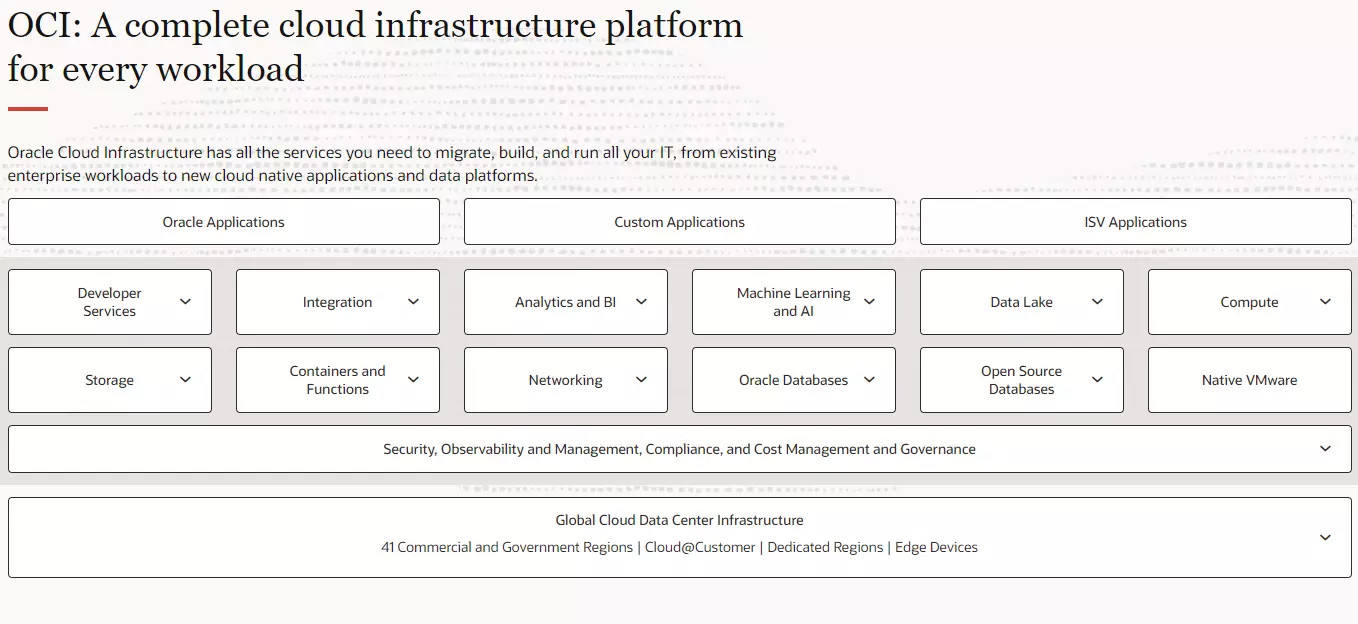 OCI
OCI
Oracle Cloud Infrastructure (OCI) stands out as the first vendor to offer IaaS, PaaS, and SaaS cloud models within a unified platform. OCI provides a comprehensive suite of cloud services with a strong emphasis on databases, enterprise applications, and high-performance computing. Oracle’s expertise in database technology and its integrated cloud offerings, including on-premises, hybrid, public, and dedicated cloud solutions, make it a compelling choice for organizations heavily reliant on Oracle technologies.
10. Huawei Cloud – Global Ambitions and Expanding Infrastructure
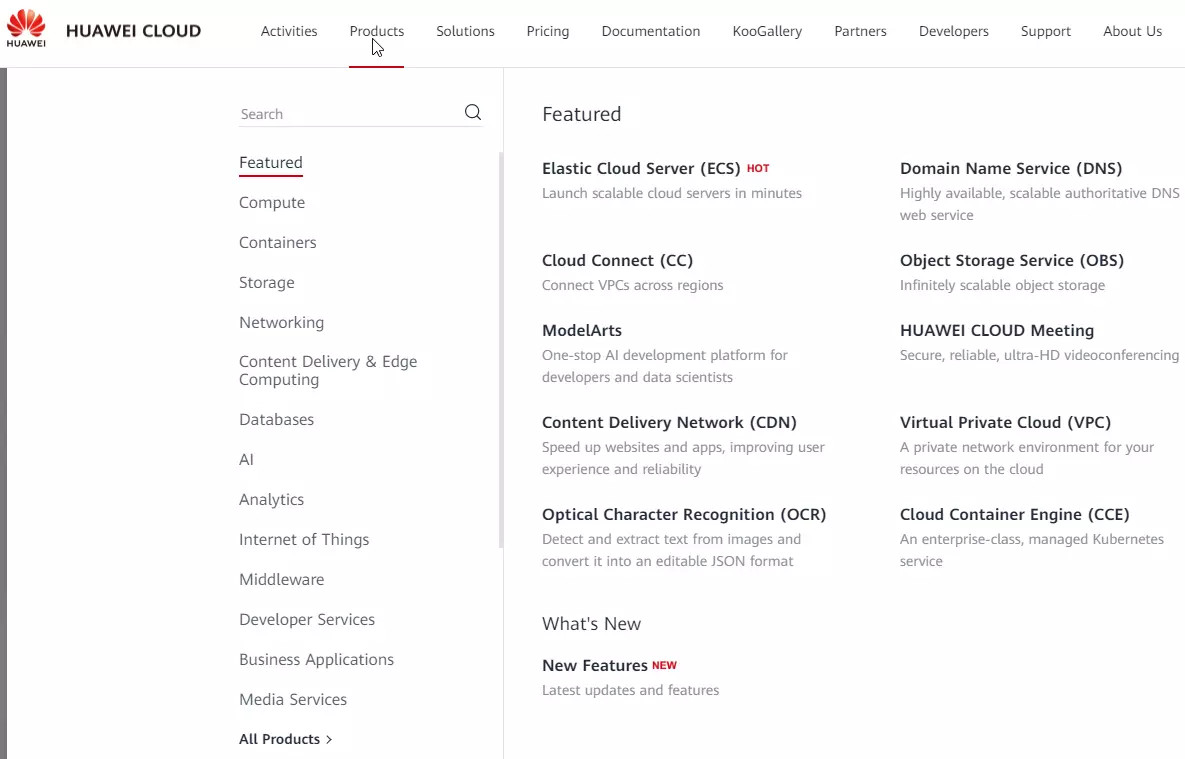 huawei cloud
huawei cloud
Huawei Cloud is rapidly gaining global traction, aiming to become a leading global cloud service provider. Having captured a significant share of the Chinese cloud market, Huawei Cloud is expanding its infrastructure and service offerings across 170 countries. Its ambition to become a major international CSP makes Huawei Cloud a provider to watch, particularly for organizations seeking geographically diverse cloud infrastructure and a growing range of services.
11. Dell Technologies Cloud – Hybrid and Multi-Cloud with VMware Integration
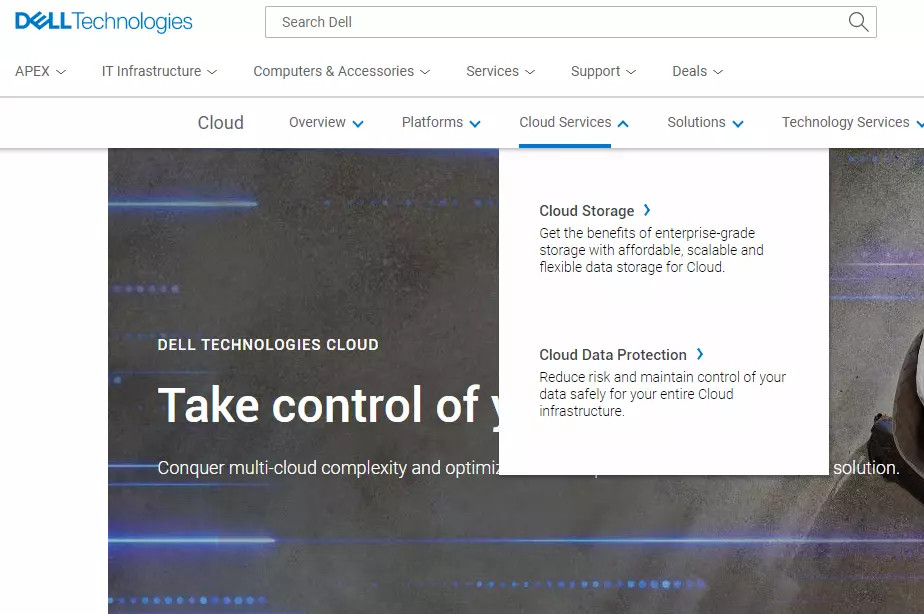 dell technologies cloud
dell technologies cloud
Dell Technologies Cloud leverages VMware software and Dell’s hardware infrastructure to deliver an integrated multi-cloud platform. Focusing on hybrid and multi-cloud solutions, Dell Technologies Cloud emphasizes storage, data protection, and enterprise-grade security. Its integration with VMware, a leading virtualization platform, makes it attractive to organizations heavily invested in VMware environments seeking a seamless hybrid cloud experience.
12. Cisco Cloud Solutions – Hybrid Cloud and Networking Strengths
Cisco, a long-established leader in networking, offers Cisco Cloud Solutions with a particular focus on hybrid cloud strategies. While entering the cloud market later than some competitors, Cisco leverages its networking expertise to provide robust multi-cloud solutions, emphasizing seamless integration and management. Cisco Cloud is well-suited for organizations prioritizing strong security protocols and requiring optimized workload management across hybrid environments. Its user-friendly interfaces and comprehensive support simplify cloud resource deployment and management.
13. Rackspace – Managed Cloud Expertise and Fanatical Support
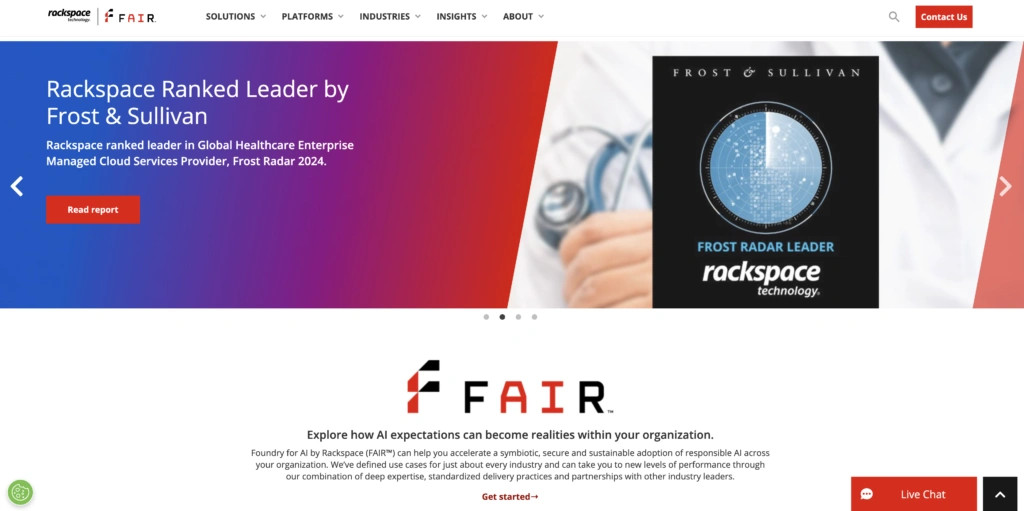
Rackspace is known for its managed cloud services and its “Fanatical Experience®” customer support. Rackspace offers a blend of public, private, and hybrid cloud environments, tailored to meet diverse customer requirements. Its managed cloud services provide expert support and management, offloading the burden of cloud operations from internal IT teams. While having a smaller market share compared to the giants, Rackspace’s commitment to customer service and managed cloud expertise makes it a valuable option, particularly for organizations seeking hands-on support and guidance.
Honorary Mentions:
- Hewlett Packard Enterprise (HPE) services: HPE focuses on Edge-to-Cloud computing and hybrid cloud deployments, offering solutions that extend cloud capabilities to the network edge.
- Linode Cloud services: Linode specializes in providing virtual machines, managed databases, Kubernetes, and cloud storage, catering to developers and businesses seeking straightforward and developer-friendly cloud infrastructure.
Optimizing Cloud Costs with Cloud Cost Intelligence Platforms
As businesses increasingly adopt multi-cloud strategies and leverage diverse cloud services, managing and controlling cloud costs becomes paramount. Traditional cloud cost management tools often struggle to provide accurate and granular cost visibility, particularly in complex cloud environments.
Cloud cost intelligence platforms like CloudZero emerge as essential tools for addressing this challenge. These platforms offer advanced capabilities to:
- Aggregate and Analyze Cost Data: Collect, enrich, and analyze comprehensive cost data from multiple cloud providers, providing a unified view of cloud spending.
- Granular Cost Insights: Break down cloud costs by various dimensions, such as projects, teams, products, features, and customers, enabling detailed cost allocation and accountability.
- Real-time Cost Monitoring and Alerts: Provide real-time visibility into cloud spending and trigger alerts for anomalous cost patterns, enabling proactive cost optimization.
- Cost Optimization Recommendations: Offer actionable recommendations for optimizing cloud resource utilization, identifying cost savings opportunities, and improving cloud efficiency.
- Multi-Cloud and Hybrid Cloud Support: Provide comprehensive cost visibility and management across multi-cloud and hybrid cloud environments, addressing the complexities of modern cloud deployments.
By leveraging cloud cost intelligence platforms, organizations can gain greater control over their cloud spending, optimize resource utilization, and ensure that cloud investments deliver maximum business value.
[
